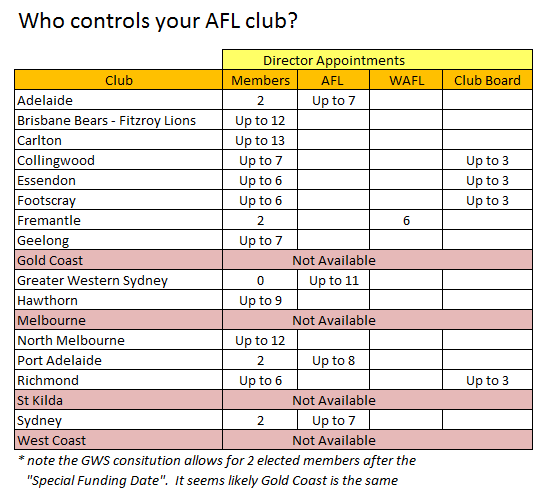How about you read Wookie's post. Its long but very interesting. And makes many, many points on where the AFL differs from what generally applies to not for profits.
Had a read of it. It is actually not Wookie but a cut and paste of a blog article
I'm not sure what you expect me to take from that though? The guy is making a very technical case against the AFL's tax free status which, me not being a tax lawyer / accountant, I am unable to contest. In practice though, I think basic principle that the AFL is a not for profit means the AFL is a not for profit however that is facilitated legally (including pragmatic treatment by the tax commissioner bestowed to all such sporting organisations).
The key is 1) there is organisational purpose that is not making profits and 2) there are no dividends paid to share holders / owners. The blogger who wrote that article is trying to characterise club distributions to its not-for-profit member clubs as dividends which is absurd whether he is right or not about his legal interpretation. Clearly the tax commissioner thinks so as well.
He claims that Collingwood never sent him an AGM notification when he was a member which is probably because he wasn't a social club member (which is the requirement to be a capital M member) at Collingwood.
Bottom line is though that there is still no way the AFL (and presumably the NRL) could be made to pay tax in a credible and legal way that does not radically shake up sporting, and many non-sporting organisations tax statuses





